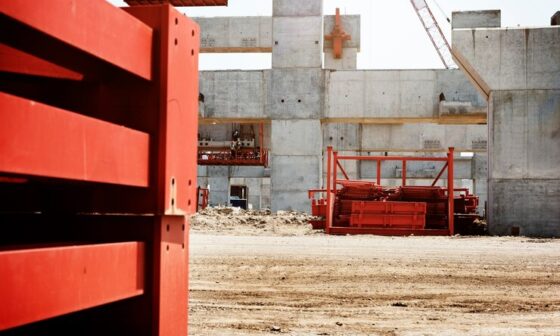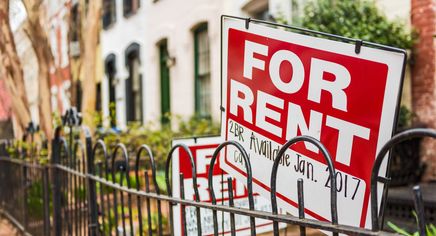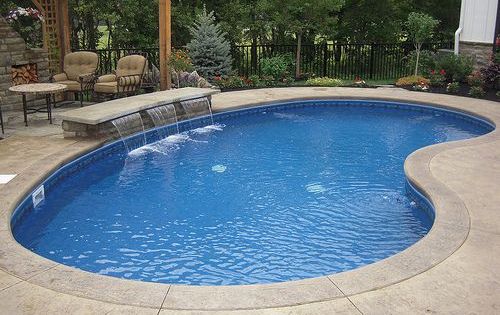Understanding Section 11
Section 11 of the Landlord and Tenant Act 1985 is a vital legal provision that governs the responsibilities of landlords in maintaining rented properties and ensuring the premises are safe, habitable, and fit for purpose.
This legislation imposes obligations on landlords to carry out necessary repairs and maintenance work, protecting the rights and well-being of tenants.
The Landlord’s Repairing Obligations
Under Section 11, landlords are legally obliged to maintain the structure and exterior of the property, as well as keeping various installations in good working order.
The key elements covered by the repairing obligations include:
-
Structural Integrity:
Landlords must ensure that the property’s structure remains sound and free from defects that could compromise its stability or safety.
This includes maintaining walls, floors, roofs, foundations, and other load-bearing components.
-
Water and Gas Supply:
Landlords have a duty to ensure a continuous and safe water supply, as well as properly functioning gas installations.
This involves regular inspections, repairs, and compliance with applicable safety regulations.
-
Sanitary Conditions:
It is the landlord’s responsibility to maintain appropriate sanitary facilities, such as toilets, sinks, and drains, in good working order. Any issues affecting sanitation should be promptly addressed.
-
Heating and Electrical Systems
The landlord must ensure that heating systems, electrical wiring, and appliances provided are safe, functional, and compliant with relevant standards. Regular inspections and maintenance are crucial in this regard.
Tenant’s Reporting Responsibilities
Tenants are responsible for promptly reporting any necessary repairs or maintenance issues to the landlord or property management.
This ensures that the landlord is made aware of any problems that require attention and can take appropriate action within a reasonable timeframe.
Landlord’s Response and Remedies
Once a tenant reports a repair issue, the landlord is obligated to respond promptly and take necessary remedial action.
The specific course of action may vary depending on the nature and urgency of the repair required. Typically, the landlord should:
-
Assess the Issue
The landlord or their appointed representative should assess the reported problem to determine its severity and the appropriate course of action.
-
Arrange Repairs
The landlord must promptly arrange for qualified professionals to carry out the necessary repairs. This ensures that the issue is resolved efficiently and to a satisfactory standard.
-
Keep Communication
Maintaining open and transparent communication with the tenant throughout the repair process is crucial. This helps to manage expectations and ensure the tenant feels valued and supported.
Potential Disputes and Resolutions
Despite the clear legal obligations outlined in Section 11, disputes between landlords and tenants regarding repairs can still arise.
In such cases, it is advisable to seek an amicable resolution through the following steps:
-
Document and notify
Tenants should document all reported repair issues and notify the landlord in writing, clearly stating the problems and the desired outcome.
This creates a paper trail that can be used for future reference if required.
-
Mediation or Arbitration
If communication breaks down or no resolution is reached, alternative dispute resolution methods, such as mediation or arbitration, can be explored.
These processes aim to achieve a fair and mutually agreeable outcome.
-
Legal Action
In some cases, despite efforts to resolve the issue amicably, legal action may become necessary.
This should be considered as a last resort, as it can be time-consuming, costly, and may strain the landlord-tenant relationship.
However, if all other avenues have been exhausted, seeking legal advice and pursuing a formal resolution through the courts may be the only option.
Tenant’s Rights and Compensation
Section 11 also provides tenants with certain rights and avenues for compensation. If the landlord fails to fulfill their repairing obligations, tenants may be entitled to:
-
Compensation
Tenants may be eligible to claim compensation for any inconvenience, discomfort, or financial losses suffered as a result of the landlord’s failure to carry out necessary repairs within a reasonable timeframe.
-
Alternative Accommodation
In cases where the property becomes uninhabitable due to the landlord’s negligence, tenants may be entitled to seek alternative accommodation, with the costs borne by the landlord.
It is important for tenants to understand their rights and seek appropriate legal advice to ensure they receive fair treatment and compensation when their landlords fail to fulfill their obligations.
Section 11 of the Landlord and Tenant Act 1985: FAQ
-
What repairs are covered under Section 11?
Section 11 covers various repairs that landlords are responsible for, including maintaining the structure and exterior of the property, water and gas supply systems, sanitary facilities, and heating/electrical systems.
These repairs are crucial to ensure the property remains safe and in good condition.
-
Are there any reporting obligations for tenants under Section 11?
Yes, tenants have a responsibility to report any necessary repairs to the landlord or property management promptly.
It is important for tenants to communicate repair issues in writing, providing details of the problems to ensure the landlord is aware and can take appropriate action.
-
What should landlords do in response to reported repairs?
Once a repair issue is reported, landlords should respond promptly and take necessary remedial action.
This typically involves assessing the problem, arranging for qualified professionals to carry out repairs, and maintaining open communication with the tenant throughout the process.
-
Can tenants seek compensation for repairs not carried out by landlords?
Yes, tenants may be entitled to compensation if landlords fail to carry out necessary repairs within a reasonable timeframe.
Compensation can cover inconveniences, discomfort, or financial losses suffered as a result of the landlord’s negligence. Seeking legal advice may be necessary in such cases.
-
What steps can tenants take if repair disputes arise?
In cases where repair disputes arise, tenants should document reported repair issues and notify the landlord in writing.
If communication breaks down or no resolution is reached, alternative dispute resolution methods like mediation or arbitration can be explored. Legal action can be considered as a last resort.
-
How does compliance with Section 11 benefit both landlords and tenants?
Compliance with Section 11 benefits both landlords and tenants. For landlords, fulfilling their repairing obligations helps maintain positive landlord-tenant relationships, preserves property value, and avoids potential legal disputes.
Tenants can enjoy safe and habitable living conditions, knowing their rights are protected.
-
Is there a specific timeline for landlords to carry out repairs under Section 11?
While Section 11 does not provide a specific timeline for repairs, landlords are expected to address repair issues promptly.
The urgency of repairs may vary depending on the nature of the problem.
Landlords should aim to resolve urgent repairs that affect the safety or habitability of the property as quickly as possible.
-
Does Section 11 apply to all types of tenancies?
Yes, Section 11 applies to most types of tenancies, including assured shorthold tenancies, regulated tenancies, and periodic tenancies.
However, it’s important to note that certain tenancies, such as social housing or properties provided by local authorities, may have separate regulations governing repairs.
-
Can landlords pass on repair costs to tenants?
Under Section 11, landlords are primarily responsible for covering the costs of necessary repairs.
However, in some cases, where the damage or repair need was caused by the tenant’s negligence or misuse, landlords may be able to seek reimbursement from the tenant.
It is important for landlords to provide evidence and follow the proper legal procedures in such situations.
Disclaimer: The information provided in this article is for informational purposes only and should not be construed as legal advice.
For specific legal guidance concerning Section 11 of the Landlord and Tenant Act 1985, we recommend consulting a qualified legal professional. You may also refer to the official legislation at https://www.legislation.gov.uk/ukpga/1985/70/section/11 for accurate and authoritative information.



